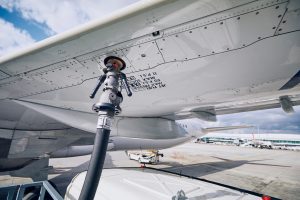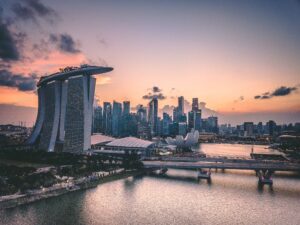With signs of hope that more and more countries lift travel restrictions during the following months, airlines prepare for the summer, their COVID recovery, and way back to normal. However, as often cited, the “new normal” will be different from the pre-COVID world.
COVID Recovery: Airlines Focus on Domestic, VFR, and Holiday Travel
If you follow the news about airlines and their planned schedules for the upcoming summer, it is evident that many airlines share a similar COVID recovery strategy:
- Wherever possible, airlines focus on domestic flights as the first step of their recovery.
- In a second step, airlines focus on holidays and visit friends and relatives (VFR) travel.
Obviously, focusing on domestic travel makes total sense as long as international travel restrictions are in place. Moreover, as we can see, airlines with a substantial domestic market are recovering faster than airlines with a small domestic market (Check out our articles about China Southern and United Airlines to find out more).
Lufthansa Serves More Holiday Destinations Than Ever
Nevertheless, holiday destinations are another essential pillar of airlines’ COVID recovery process. The summer schedule of Germany’s Lufthansa, for example, contains more than 100 holiday destinations. Lufthansa’s CEO, Carsten Spohr, commented on the plan with, “This is an absolute record in the group’s history.”
COVID Isn’t Just Another Crisis
But it’s not only Lufthansa. Airlines around the globe aim in the same direction. So let’s answer the questions of why this is the case. First, it is essential to understand that COVID isn’t a crisis like any other before. 9/11 or the financial crisis, or any other crisis of the past decades all look tiny compared to COVID.

In the 9/11 aftermath, global traffic declined by 1.1% in 2001 and 2.8% in 2002 — compared to the traffic level in 2000. In total numbers, we are talking about 50 million passengers. The financial crisis’s impact was even much lower. From a global perspective, the aviation industry stagnated from 2007 to 2009.
Now, with COVID, the global passenger figures declined by 60%! That’s a reduction of 2.6 billion passengers in one year. As a result, the industry is sent back to 2003’s traffic level.
Airlines’ COVID Recovery: What we can Learn From Previous Crises
Although 9/11 and the financial crisis had a much lower impact on the airline industry, it still makes sense to have a closer look to derive necessary actions. And probably that’s what most of the airlines did.
| 9/11 | Financial Crisis (2008) | |
|---|---|---|
| VFR | 0 | 3 |
| Holiday | 0 | 6 |
| Study | 4 | 6 |
| Misc. | 0 | not recovered |
| Business | 4 | not recovered |
As shown in the table above, it is evident that holiday and VFR travel recovers much faster than business travel. In this particular case, it took business travel four years to recover from 9/11 — and more importantly, business travel hasn’t recovered yet from the financial crisis. However, VFR and holiday travel recovered immediately from 9/11 and within 3-6 years from the financial crisis.
Since COVID’s impact is much more significant, it is questionable if and when business travel will recover. Therefore, a concentration on holiday and VFR travel makes perfect sense.
[rp4wp]
New Routes, new Aircraft, new Networks
From our point of the airlines’ COVID recovery strategy for this summer is only the beginning of a much bigger change process. A stronger focus on VFR and holiday travel can change the industry in the long term.
Especially the more prominent airlines optimized their products in a business-traveler favor: Huge business classes, sophisticated hub-and-spoke networks, etc. On the contrary, holiday travel requires smaller aircraft, smaller business classes, and probably more point-to-point driven networks.
What’s Your Opinion?
We’re always happy to get your feedback! Leave us a comment or get in touch with the author on social media!





